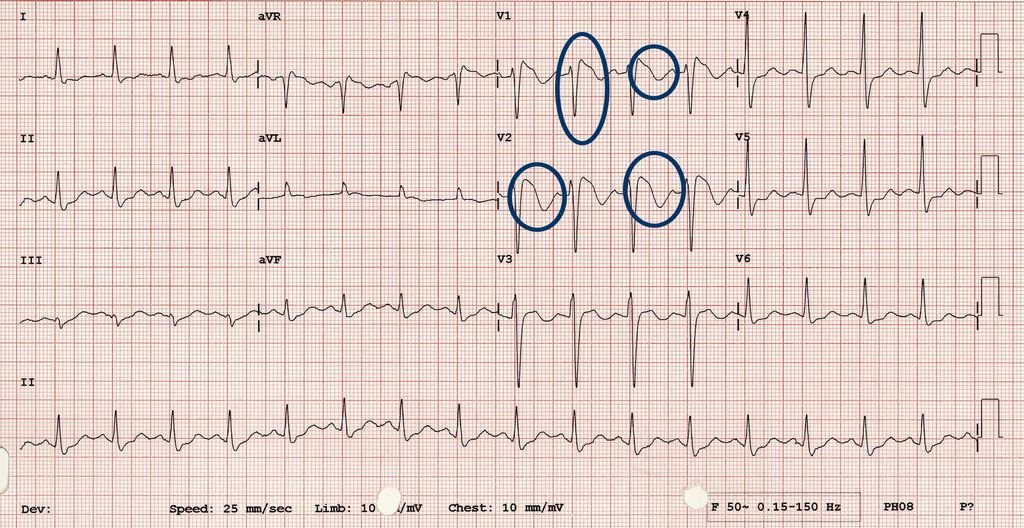The Causes of Brugada Syndrome and Its Symptoms: Everything You Need to Know

Brugada syndrome is a rare genetic disorder that affects the heart’s rhythm. It can cause sudden cardiac death, even in young people who are otherwise healthy.
What is Brugada syndrome?
Brugada syndrome is a genetic disorder that affects the heart’s electrical system. It causes the heart to beat in a dangerous rhythm called ventricular fibrillation. Ventricular fibrillation can prevent the heart from pumping enough blood to the body, leading to sudden cardiac death.
Causes of Brugada syndrome
Brugada syndrome is caused by gene mutations that control the heart’s electrical system. These mutations can be inherited from a parent or occur randomly.
Symptoms of Brugada syndrome
The most common symptom of Brugada syndrome is fainting (syncope). Other symptoms may include:
- Dizziness
- Palpitations (feeling like the heart is racing or skipping beats)
- Shortness of breath
- Chest pain
- Seizures
Diagnosis of Brugada syndrome
Brugada syndrome is diagnosed based on a person’s medical history, family history, and physical examination. A doctor may also order tests such as:
- Electrocardiogram (EKG): An EKG measures the heart’s electrical activity.
- Holter monitor: A Holter monitor is a portable EKG device worn for 24 hours to record the heart’s electrical activity over time.
- Genetic testing: Genetic testing can be used to identify mutations in genes that cause Brugada syndrome.
Treatment of Brugada syndrome
There is no cure for Brugada syndrome, but there are treatments that can help to prevent sudden cardiac death. These treatments may include:
- Implantable cardioverter defibrillator (ICD): An ICD is a device that is implanted in the chest to monitor the heart’s rhythm. If the heart starts to beat in a dangerous rhythm, the ICD can send an electrical shock to reset the heart’s rhythm.
- Medications: Medications such as quinidine or procainamide can help prevent the heart from beating in a dangerous rhythm.
- Surgery: Surgery may be recommended for people with Brugada syndrome who have had multiple fainting episodes or sudden cardiac death.
Prognosis for Brugada syndrome
The prognosis for Brugada syndrome varies depending on the severity of the condition. People with mild Brugada syndrome may live average lifespans. People with severe Brugada syndrome are at increased risk of sudden cardiac death.
Conclusion
Brugada syndrome is a rare genetic disorder that can cause sudden cardiac death. There is no cure for Brugada syndrome, but there are treatments that can help to prevent sudden cardiac death. If you or someone you know has Brugada syndrome, working with a doctor to develop a treatment plan is essential.
Additional information:
- Brugada syndrome is most common in men.
- Brugada syndrome is more common in people of Asian and Southeast Asian descent.
- Brugada syndrome can be triggered by medications such as antipsychotics and antidepressants.
- If you have Brugada syndrome, avoiding drugs that can trigger dangerous heart rhythms is essential.
- If you have Brugada syndrome, you must tell your doctor before starting new medications.
- Many support groups are available for people with Brugada syndrome and their families.






